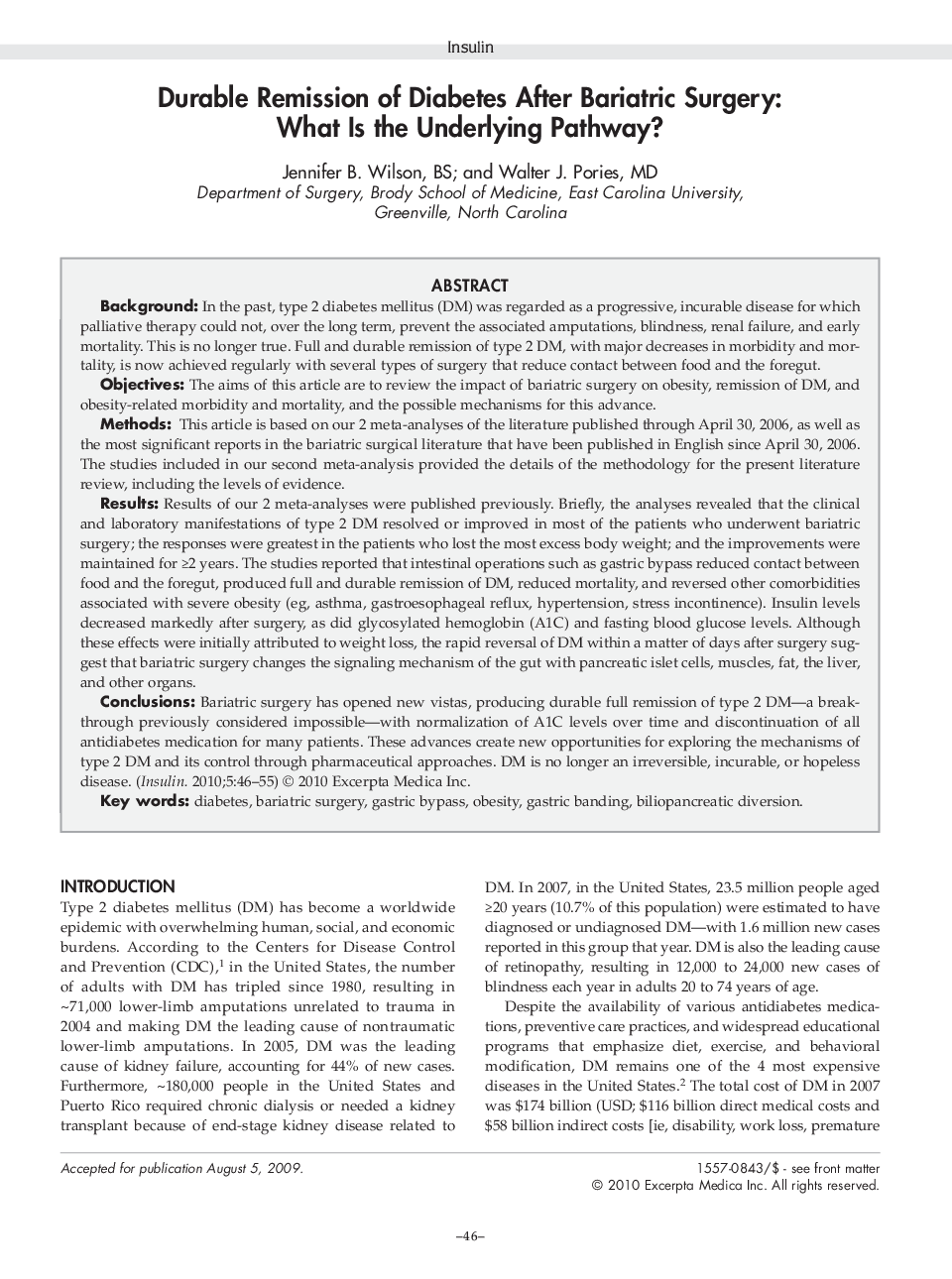| Article ID | Journal | Published Year | Pages | File Type |
|---|---|---|---|---|
| 2803710 | Insulin | 2010 | 10 Pages |
Background: In the past, type 2 diabetes mellitus (DM) was regarded as a progressive, incurable disease for which palliative therapy could not, over the long term, prevent the associated amputations, blindness, renal failure, and early mortality. This is no longer true. Full and durable remission of type 2 DM, with major decreases in morbidity and mortality, is now achieved regularly with several types of surgery that reduce contact between food and the foregut.Objectives: The aims of this article are to review the impact of bariatric surgery on obesity, remission of DM, and obesity-related morbidity and mortality, and the possible mechanisms for this advance.Methods: This article is based on our 2 meta-analyses of the literature published through April 30, 2006, as well as the most significant reports in the bariatric surgical literature that have been published in English since April 30, 2006. The studies included in our second meta-analysis provided the details of the methodology for the present literature review, including the levels of evidence.Results: Results of our 2 meta-analyses were published previously. Briefly, the analyses revealed that the clinical and laboratory manifestations of type 2 DM resolved or improved in most of the patients who underwent bariatric surgery; the responses were greatest in the patients who lost the most excess body weight; and the improvements were maintained for ≥2 years. The studies reported that intestinal operations such as gastric bypass reduced contact between food and the foregut, produced full and durable remission of DM, reduced mortality, and reversed other comorbidities associated with severe obesity (eg, asthma, gastroesophageal reflux, hypertension, stress incontinence). Insulin levels decreased markedly after surgery, as did glycosylated hemoglobin (A1C) and fasting blood glucose levels. Although these effects were initially attributed to weight loss, the rapid reversal of DM within a matter of days after surgery suggest that bariatric surgery changes the signaling mechanism of the gut with pancreatic islet cells, muscles, fat, the liver, and other organs.Conclusions: Bariatric surgery has opened new vistas, producing durable full remission of type 2 DM—a breakthrough previously considered impossible—with normalization of A1C levels over time and discontinuation of all antidiabetes medication for many patients. These advances create new opportunities for exploring the mechanisms of type 2 DM and its control through pharmaceutical approaches. DM is no longer an irreversible, incurable, or hopeless disease.
